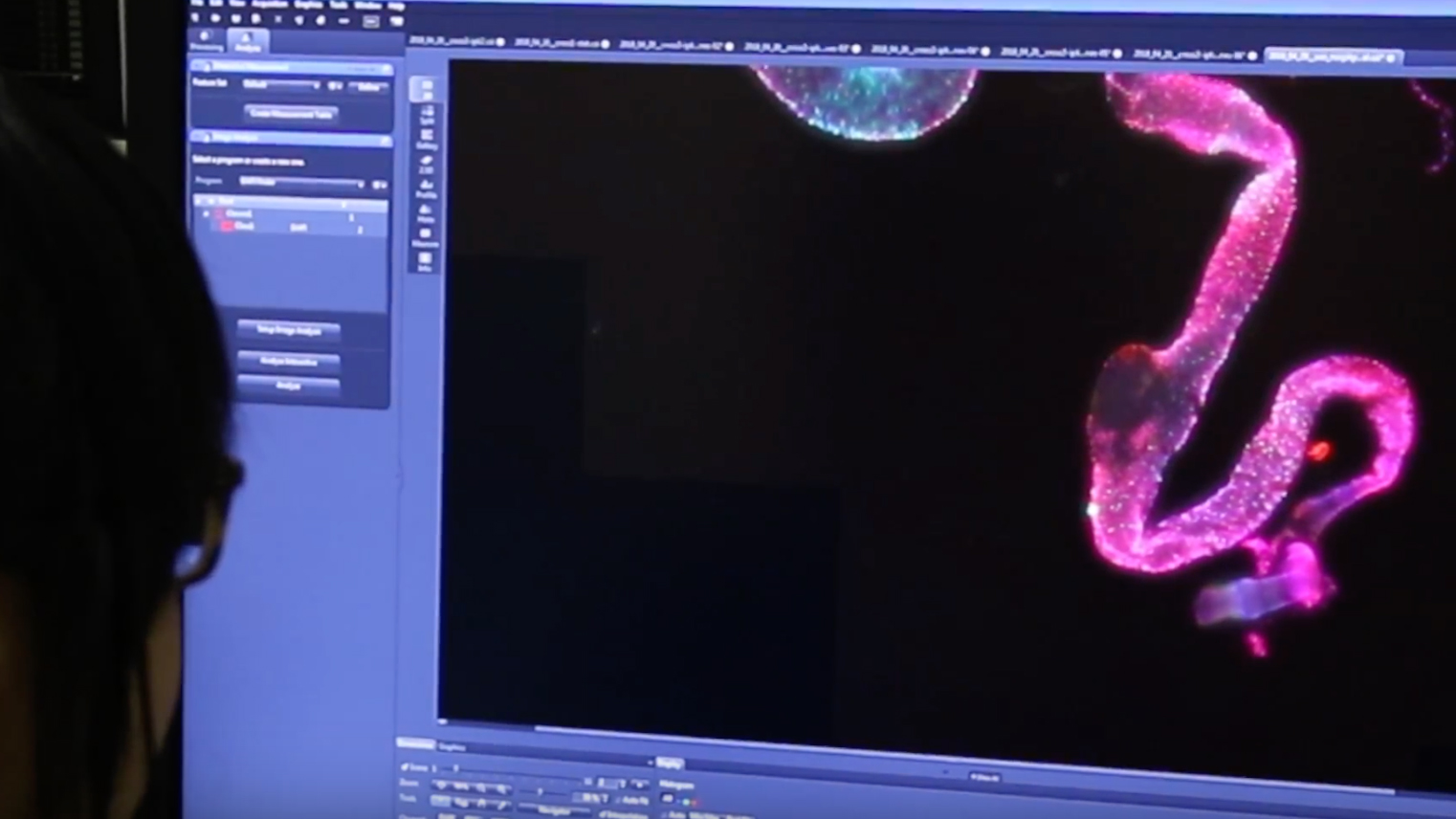


The Circadian Clock is an ancient and evolutionarily conserved pathway present in all animals including human beings. The study of the timing of intestinal regeneration is very significant to health. We are interested in how the loss of circadian rhythms affects inflammation, and cancer. A combination of mouse genetics, cell biology, and genomic methods (RNA-seq, and scRNA-seq) are used to test this system.
Our research is also significant in understanding cancer, particularly colorectal cancer which is higher in shift-workers. Regeneration can lead to cancer because the activation of stem cells can turn on genes involved in growth and proliferation. We are interested in exploring how the growth and division of cells has circadian timing, and what happens when this timing is lost. As well, the treatment of cancer often results in gastrointestinal mucositis due to damage of the intestinal epithelium by chemo- or radiation-therapies. Our research will provide information to prevent and optimize treatments for cancer based on daily timing.
The intestine and colon can be readily grown in cell culture in the form of intestinal “organoids”. These organoids are artificial ‘miniguts’ that arise from stem cells harvested from animal tissues. Organoid assays enable us to study the physiology of animals without using the animals themselves.
We derive organoids from mice and human biopsies as an exciting new model system to complement our animal-based work. We are using organoids to test specific cellular behaviours, to test the underlying genetics, and to apply transgenic reporters and genomics (RNA-seq) to characterize this system. Organoids allow sophisticated cell-based experiments to study the interactions between the cells making up the intestinal epithelium. In particular, we are interested in using human organoids to study the regeneration and circadian biology of the human small intestine and colon. Such experiments cannot be done on human beings themselves.
The genetic tractability of Drosophila makes it an excellent model system to investigate complex cellular interactions. Functional genetic screens can be carried out in Drosophila to discover new genes. These can be investigated in other animals where they are often conserved. We use complex genetic methods, genomics (scRNA-seq and DamID) in Drosophila to discover and characterize new processes.
We have shown that the Drosophila intestine shows circadian rhythms in regeneration. We have further found that the Circadian Clock is first established in the stem cells of the intestine when it develops. We are interested in using Drosophila to understand how circadian rhythms influence the regeneration and metabolism of the digestive tract at the single-cell level.